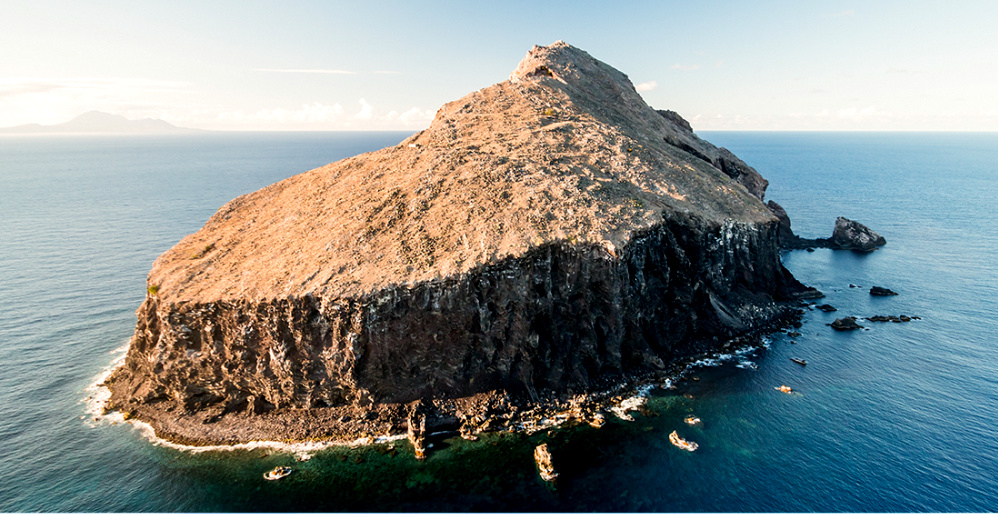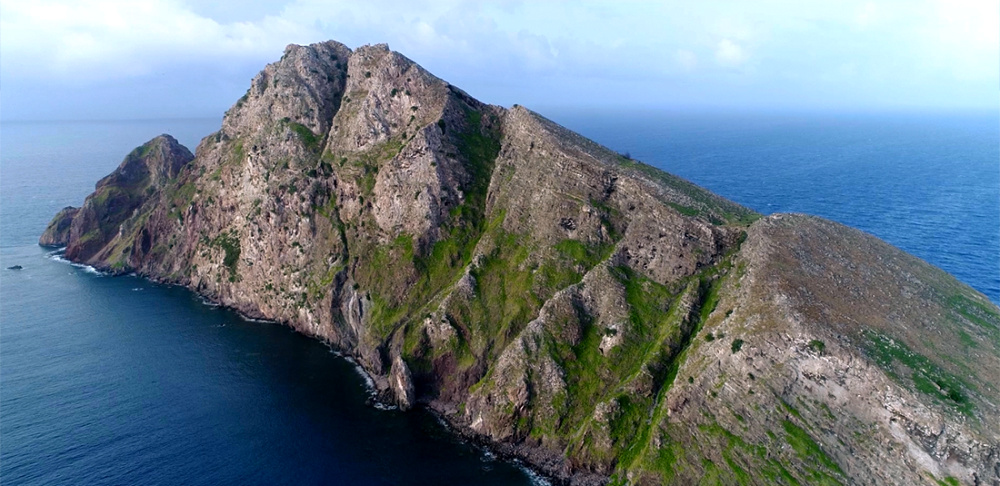Rewilding an Island
Caribbean Frigatebirds (credit: Birds Caribbean/Rhiannon Austin)
The small and uninhabited Caribbean island of Redonda is near Antigua and Barbuda and provides a case study in island restoration. It showcases what is possible when well-planned ecological restoration efforts are enacted. Project design and on-the-ground management were keys to this success and the island's tropical environment allowed for its rapid recovery to occur with six years.
Collaborations were established between the non-profit Environmental Awareness Group (EAG), Fauna & Flora a Caribbean wildlife organization, and local volunteers who worked together to help restore the 'moonscape' that was a denuded Redonda to become a wildlife sanctuary now. Some native species recovered from remnant survivors on the island; some seabirds re-established rookeries naturally on their own; while several other species were specifically re-introduced to their former habitat. The recovery of the island's vegetation, birds, and other wildlife was remarkable. Before and after drone views show the progress of recovery over the six year timeline.


Rewilding Redonda Island, 2016-2023 (credit: Ed Marshall/Fauna & Flora, Robin Moore)
Islands are excellent locations for restoration projects as the represent a contained landscape surrounded by water. An island's ecological degradation typically begins with the release, sometimes purposefully in the release of goats, pigs and rabbits for food, or un-intentionally by the escape of rats, cats, and mosquitoes from ships that stopped there. The invasive animals adapted well to their new environments becoming feral pests that devoured the island's plants, trees, birds, and other wildlife or brought diseases such as avian malaria to Hawai'i. For restoration to have any chance of success, these invaders must be removed. This process can require aerial sharp-shooters to cull the goats and pigs or species-specific viruses that eliminate the cats and rats or the release of sterile insects that can't reproduce in matings. Other islands, from California's windy Channel Islands to Australia's sub-Antarctic Macquarie Island, show how rewilding is possible even in extreme environments when a restoration project is planned and executed properly.
The EGA, Fauna & Flora, and their collaborators are working to restore other Caribbean islands degraded by similar feral pests to repeat their demonstrated success on Redonda. WHB